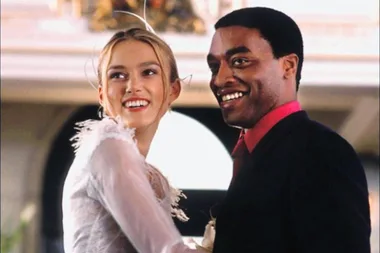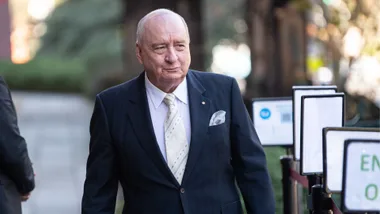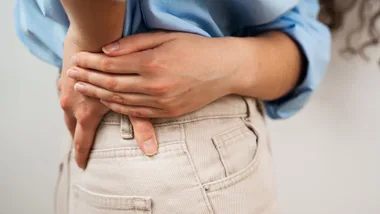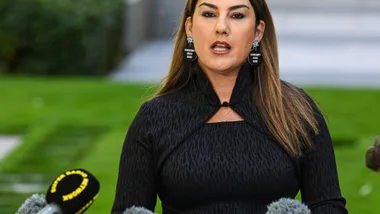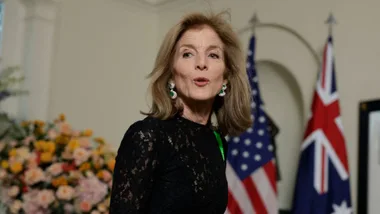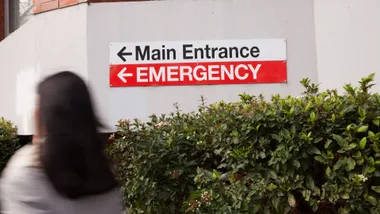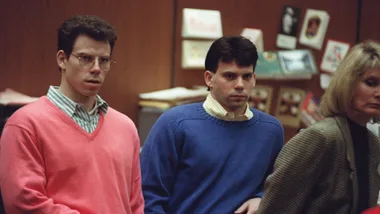Speaking for the first time in court after being convicted of sexually assaulting former production assistant Mimi Haleyi and raping former aspiring actress Jessica Mann, Harvey Weinstein begged for leniency at his sentencing – and expressed his bewilderment at the idea of facing the consequences of his crimes.
In a rambling statement, he said, “The [#MeToo] movement started basically because of me… I was the first example and now there are thousands of men who are being accused.”
“I’m worried about this country,” he continued, before being sentenced to 23 years in jail. “[There are] thousands of men and woman who are losing due process [after being accused]. I’m totally confused. I think men are confused about these issues.”
It’s not surprising Weinstein is confused about being held accountable for his crimes; until now, the Hollywood producer has been sitting on a pedestal, out of reach from the hands of justice.
Until now, the 67-year-old has been able to use his power, money and status to abuse women – and get away with it.
Until now, the millionaire thought he could buy his way out of trouble with under-the-table settlements and non-disclosure agreements.
To be honest, we understand why Weinstein is confused about being kicked off his pedestal and forced to pay for his crimes – with an actual jail sentence, not just the company cheque-book.
For too long, rapists have been getting away with their crimes, with low reporting rates and even lower convictions. In Australia, only one in 10 reported cases of sexual assault results in a conviction.
The 2016-17 ABS survey found that at least 180,000 Australians experienced sexual violence. Of these people, between nine and 14 per cent reported the crime to police. And of the 25,837 survivors who reported to police, only 4,797 had charges laid against their attacker within a month, meaning the remaining 80 per cent of cases were discontinued or ongoing.
Even when a conviction is recorded, the average sentence for sexual assault in Victoria is one year, and the average sentence for rape is five years.
But! Data from the Sentencing Advisory Council shows the average sentences for sexual assault offences are increasing. From 2014 to 2018, sentences for rape went up 31 per cent, and sentences for sexual assault went up 74 per cent.
It’s slow progress and we still have a long way to go before we get real justice for survivors, but since the #MeToo movement swept across the world in 2017, reports of sexual assault have risen in Australia to an all-time high and sentences have gotten tougher.
Weinstein’s sentence is the line in the sand, marking our movement to the right side of history. It’s a turning point for justice, holding rapists accountable for their crimes with an appropriate punishment. And it’s a message to all abusers out there: you are not immune from punishment.
Jessica Mann said it best in her victim impact statement: “Harvey still denies his wrongdoing towards me, Mimi, Annabella, the other women who testified and the plethora of other voices unable to be heard in the court of law. A man who had so many previous NDA’s hiding his past sexual assaults, he’s baffled at finally being held accountable. A man who assumed his money and presidential alliances made him untouchable.”
She called for real justice: “Today I have no shame… I have found my voice and together we can have a future vision where monsters no longer hide in our closets. Your Honor, you have the ability to make that new world possible by sending a resounding message of new precedents and accountability by valuing our individual lives.”
The new future is here – and we welcome it with open arms, a tearful sigh of relief and a standing ovation for the brave survivors, prosecutors and journalists who fought so hard for it. Thank you.
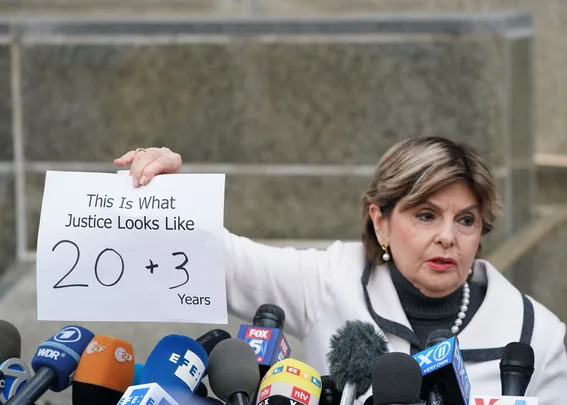 Getty
Getty

